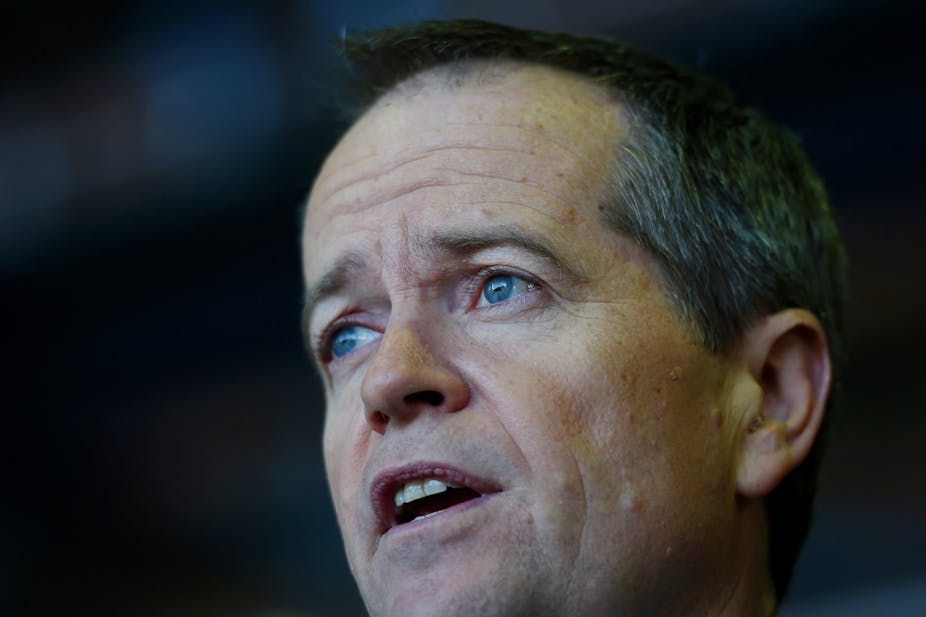The parliamentary budget session has ended with Tony Abbott having reason to feel a good deal more confident than Bill Shorten.
After the budget itself going down relatively well for the government, some A$14 billion of savings have been passed in the last fortnight. Abbott has planted national security centre stage, and resolved the nasty ministerial dog fight over the citizenship legislation.
Shorten’s personal ratings have slipped. His toes are on the sticky paper of the royal commission into union corruption. The Killing Season series forced him to apologise for a lie he told 3AW in 2013.
Labor’s lead in the polls is solid but not massive. By the spring session it may be clearer whether that lead is going to hold.
The six-week recess will throw up tests for both leaders. One can say confidently it will not, as Shorten claimed this week was possible, see the calling of an election.
In particular, Abbott will be trying to advance two issues on his agenda – reform of the federation and the Indigenous referendum. But Shorten will have a tougher go of it in this period. He needs to get through his July 8 royal commission appearance with minimal damage, and he has to avoid the ALP national conference later that month turning into a negative.
Abbott has called a “retreat” with the premiers late in July to discuss federalism. While that will be only an early step in the federation debate – which is entwined with the tax debate – it should give some indication of whether serious change will be possible.
This week the draft green paper on federal-state relations was leaked, forcing the government to release it prematurely. Prepared by the Prime Minister’s department, it canvasses a wide range of options on health, education, and finances, without recommendations. The publicity around the most extreme – such as charges for public schools – showed how easy it is to raise a scare in this area.
Finding sufficient consensus among premiers for reform will be tough, especially given the federal government has little or no money to grease the way for trade-offs. And there is scope for hardball. For instance, if Western Australian premier Colin Barnett had a mind for it, he could make co-operation dependent on a new GST distribution formula.
Over the years Abbott himself has been all over the place on federalism: not so long ago, he was anti-states in his attitude; now, he is much more the federalist. He has lacked and probably still lacks any clear conceptual view.
Earlier in the month, on July 6, Abbott will face a quite different challenge in the pursuit of consensus, when he meets Indigenous leaders to discuss the proposed referendum to recognise the first Australians in the constitution.
The time frame is long – there will be no vote until the next parliamentary term. But progress is not as good as supporters might have hoped.
Indigenous people are divided about the extent of the change, and it is hard to see how the divisions can be reconciled. Abbott favours minimalism, and anything but a very limited proposal would be unlikely to meet the demanding conditions for a successful referendum. Apart from the Indigenous splits, there is vocal opposition from some conservatives.
The parliamentary committee, headed by Indigenous Liberal MP Ken Wyatt, that has been considering the referendum tabled its final report this week. It has suggested several options for wording; it was inconclusive on when a vote should be held, beyond saying it should be when there was the best chance of success.
The July 6 meeting is crucial. It will gauge the potential for compromise. But there is also a risk of it becoming unstuck if the diverging views proved too polarising. These views include Pat Dodson’s desire for a prohibition on discrimination to be written into the constitution, and Noel Pearson’s proposal to include an advisory body in the constitution, with a declaration of recognition outside the constitution.
Abbott has invited Shorten to the meeting but has refused to have the Greens, which is short-sighted (given the government hopes for more co-operation with them under Richard Di Natale) and somewhat mean spirited.
While these issues are important for Abbott, Shorten has a lot more at stake in this recess.
There’s been much talk about whether the July national conference will preserve Labor’s conscience vote on same-sex marriage or “bind” its MPs. Support for binding would be a slap in the face for Shorten, a strong backer of the conscience vote. But a more vital issue for him is to ensure the conference does not prohibit a future Labor government from turning around asylum seeker boats. If it did, that could be disastrous for the ALP in an election campaign.
By the time he gets to the conference, Shorten will have faced the royal commission’s questioning about his past as boss of the Australian Workers Union. It’s hard to over-estimate the significance of this appearance for him.
Shorten is well aware of that. So the reference in The Killing Season to a meeting he had with Kevin Rudd shortly before the 2013 coup couldn’t have come at a worse time. Radio presenter Neil Mitchell had to hand the audio of Shorten two days after the meeting denying he had spoken to Rudd about the leadership.
Shorten on Thursday explained his lie by saying “I was motivated by not wanting to cause even greater heartache and concern, which was then already going on in the Labor Party”. Unfortunately for Shorten, a lie is a lie.
“You can rest assured, I am kicking myself in hindsight,” Shorten said. No doubt – especially when he desperately needs his word to be beyond dispute as he canvasses his past in the AWU.

